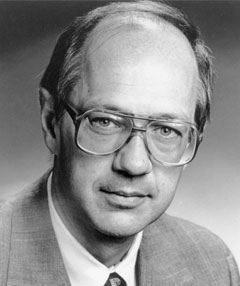Influential person: David Frick
Business and community leader
David Frick, retired chief administrative officer of Anthem Inc., has negotiated some enormous deals during his career, including the $20.8 billion purchase of WellPoint Health Network by Anthem Inc.; selling the Indiana Pacers to Mel and Herb Simon in 1983; and serving as Indianapolis’ chief negotiator in bringing the Baltimore Colts to Indianapolis in 1984.
But if you ask him which effort was most important, he picks a task he was handed in the late 1970s while serving as Bill Hudnut’s deputy mayor—overseeing the repaving of Monument Circle with bricks.
“It was the first project that involved multiple sources of funding, and [it] kicked off the concept of a partnership between government, the business community, organized labor and the philanthropic sector,” Frick said. “It created a pattern that was duplicated for all the major projects that helped redevelop downtown.”
Though his point is valid, most people more readily recall his work with the city’s pro sports teams. The second most dramatic of those was the one that kept the Indiana Pacers in town. The franchise was on the skids in the late ’70s and early ’80s, and then-owner Sam Nassi was looking for an out-of-town buyer. Frick spearheaded the effort to sell the team to shopping mall developers Herb and Melvin Simon, who took over in 1983. The deal had a huge knock-on effect.
“We never would have gotten the Colts to come to Indianapolis had we not saved the Pacers,” Frick said.
And speaking of the Colts, Frick spent years trying to attract an NFL team to the city—either by snagging an expansion club or getting an existing team to move. The multi-year charm offensive finally paid off on March 27, 1984, when the Indianapolis Colts packed their gear into 14 Mayflower moving trucks and made the 600-mile drive to Indy. Even Frick allows that this was probably a bit more momentous than bricks on the Circle.
“People would probably say that the Colts’ arrival was the biggest event in the last 40 years, and the one that changed the nature of the community,” he said.
Please enable JavaScript to view this content.











































